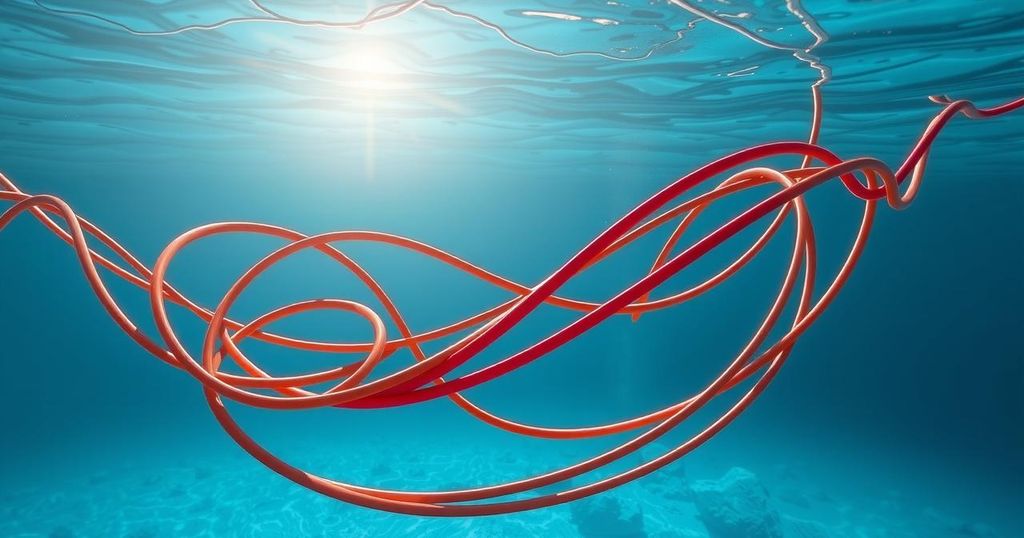Nigeria recently hosted the International Submarine Cable Resilience Summit, where government officials and industry leaders convened to discuss strategies for protecting submarine telecommunications cables from potential sabotage and damage. The event emphasized the importance of collaboration to enhance the resilience of these critical infrastructures that handle over 99% of international data traffic. Key topics included risk mitigation and the necessity for timely repairs. Increasing global tensions highlight the urgent need for heightened security measures.
In light of increasing geopolitical tensions, deliberate attacks on submarine telecommunications cables have become an escalating concern. A high-level summit held in Abuja, Nigeria brought together representatives from various governments and industry leaders to discuss measures to bolster the resilience of these critical infrastructure systems, which play an integral role in the global economy and facilitate over 99% of international data traffic.
The event, known as the International Submarine Cable Resilience Summit, was organized in collaboration with Nigeria’s ministry of communications and several international organizations, including the International Telecommunication Union and the International Cable Protection Committee. According to Graham Evans, ICPC chairman, this summit provided a vital opportunity to foster cooperation among stakeholders aimed at enhancing the resilience and protection of submarine cable networks worldwide.
Submarine cables, essential for global communications, are susceptible to various forms of damage, including natural wear and tear, harsh weather, and human activities such as accidental anchor drops by ships. These factors not only disrupt services but also incur significant repair costs. However, the emerging threat of sabotage necessitates heightened vigilance and collaborative efforts among nations.
A striking instance of potential sabotage occurred recently when the Taiwanese coast guard detained a cargo ship from China on suspicion of intentionally severing an undersea internet cable connected to Taiwan. Investigations revealed that the incident prompted concerns over possible geopolitical motives. Similar incidents have raised alarms in the Baltic Sea, leading NATO to implement its own initiative, Baltic Sentry, to monitor and safeguard undersea cables in that region.
In contrast to NATO’s militaristic approach, the Abuja summit explored alternative strategies for risk mitigation, including diversifying routes and increasing landing points to enhance the resilience of submarine cables. The summit also emphasized the need for prompt repair mechanisms, recognizing the essential role these cables play in the digital age. Nigeria’s Minister of Communications, Bosun Tijani, underscored the collective responsibility towards strengthening cable resilience to ensure continuous service provision.
In conclusion, as geopolitical dynamics continue to threaten undersea cable infrastructure, international cooperation, and strategic resilience measures are critical. The recent summit in Nigeria has set the stage for a unified effort to safeguard these vital communication links, ensuring they remain robust against both accidental damages and potential deliberate acts of sabotage. By focusing on collaborative initiatives and best practices, stakeholders aim to fortify this essential element of the digital economy.
The summit in Nigeria marks a significant step towards enhancing the resilience of submarine cables, which are pivotal to global communications. As geopolitical tensions rise, deliberate acts of sabotage pose new risks that necessitate comprehensive strategies for protection. Through cooperation and innovative solutions discussed at the event, stakeholders are positioned to improve the integrity of these submarine systems, ensuring uninterrupted access to digital communications worldwide.
Original Source: techcentral.co.za




